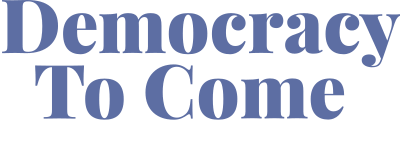One major theme in my research is that whilst many individuals aspire to more democratic ways of working, achieving it in practice is an extremely difficult business. It is fraught with tensions that individuals and groups experience as they attempt to adopt working practices often totally at odds with how they have historically been asked to behave. So, whilst many organizational members might want to relinquish power (to give away former managerial status that comes with traditional hierarchical approaches), they also might feel a competing desire to maintain control. Whilst they might want to embrace a collective approach to organizing, they might also feel that all too familiar desire to individualise and look after their own needs. In the management literature, these sorts of tensions – which appear logical when thought about separately but seemingly incompatible and contradictory when occurring together – have long been labelled as organizational paradoxes.

There have been increasing attempts in recent years to explore how individuals work through paradoxes in organizational contexts, whether this is individually (through reflection and cognition more broadly) or relationally in teams with others as we attempt to make sense of these confusing, conflicting feelings that can (if not dealt with) lead to paralysis and an inability to move forward. This is what a number of authors have called adopting a “paradox mindset”, a capacity to work through tensions either on your own or with others. However, despite the literature considering ‘others’ to be teams or peers in organizations, less often have scholars explored how paradoxes are approached in democratic organizations collectively with others, where the capacity to confront tensions is woven in to the very fabric of the organizational structure. Even less often have scholars written about their own attempts to organize democratically and how they experienced paradoxes as they tried to adopt paradox mindsets. In a new piece of research published in Academy of Management Learning and Education, my colleagues Prof. Daniel King and Dr. Patrick Reedy and I explore the experience of paradoxes specifically within democratic organizations and offer what we call a deliberative model of paradox mindsets. We do this through exploring our own efforts to set up and run a democratic organization over a five-year period and the conflicting feelings we felt in trying to do so.
In an effort to make our research ideas more accessible, we have decided to provide a video that summarises what the paper is about:
The article can be found here (if you have an Academy of Management subscription) and here if you want to read a pre-final submission version which is more or less identical!






